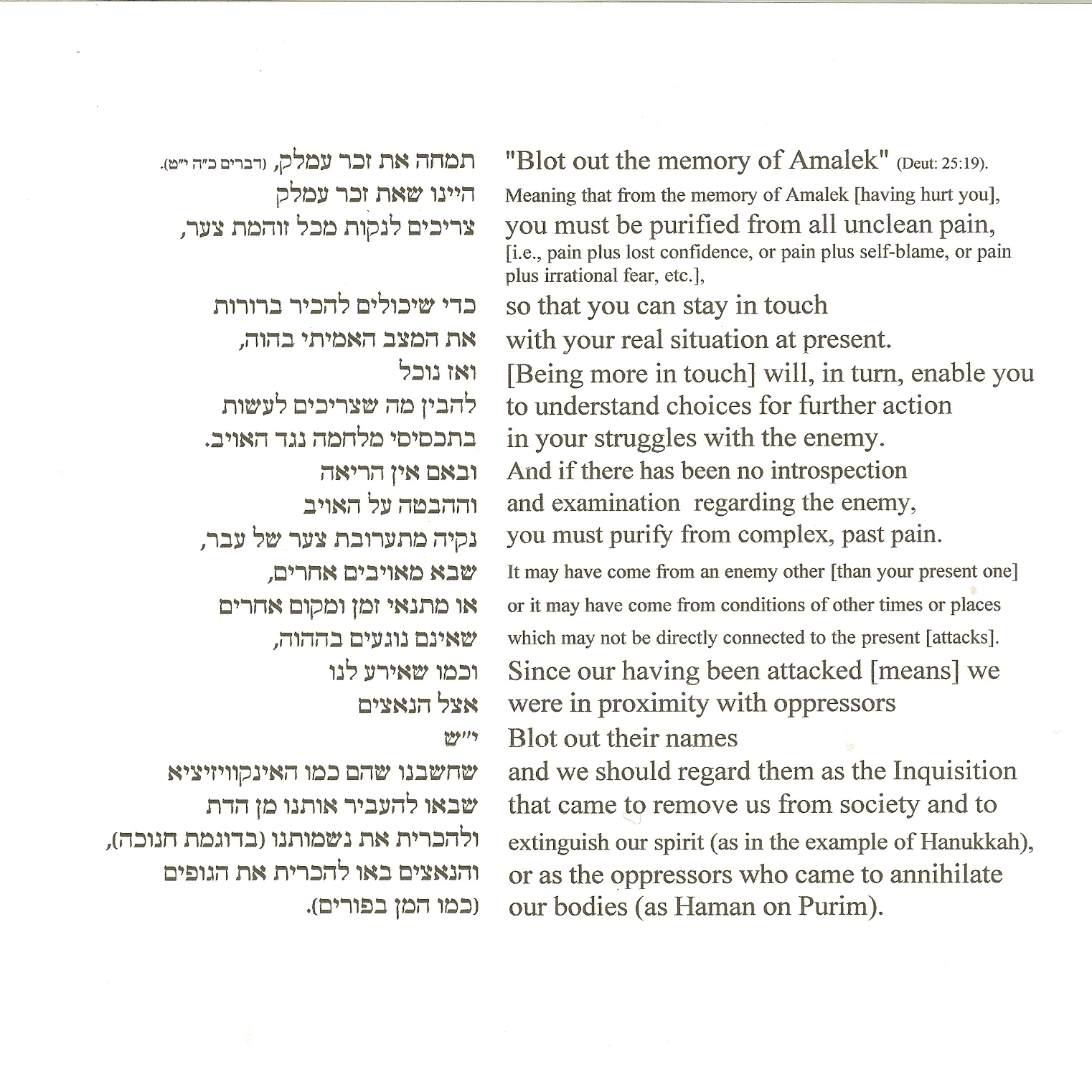Toward Freeing the Seder
Tuesday, April 1st, 2008The Passover Seder celebrates our being freed from slavery. Yet, we are sometimes enslaved by rigid notions of how the Seder must be run. Please consider Reb Zalman’s suggestions as you plan your Seders during the next few weeks. I wish you all a suessen Pesach! Gabbai Seth Fishman (BLOG Editor)
TOWARD FREEING THE SEDER
By Rabbi Zalman Schachter-Shalomi, Ph.D.
Table of Contents:
Introduction
Rechatz / Hand Washing
Die Vier Kashes / The Four Questions
Avadim Hayinu / We Were Slaves
Enslavement to Dualities
Freedom and Mishpocha
Two Seders
Esser Makot / 10 Plagues
The Fast in the Feast
Sheloshah Devorim / The Three Things
Pesach / Passover Lamb
Baking Your Own Matzah
Matzah: The First Taste
Three Matzahs: Three Sets of Jews
Breaking the Middle Matzah
Three Matzahs: Chochmah, Binah, Da-at
Maror
Maror: Bitter Work
Maror: Somatic Connections
Shulchan, Nirtzah / Meal, Acceptance
I am here to free you from the Maxwell House Haggadah, to free you in your Pesach celebration!
One thing that’s wrong with widely-used Haggadahs is archaic English like “vouchsafe,” or “bestow.” This kind of language makes it hard for us to understand even the of-this-plane plagues of the Egyptians, e.g. what is “murrain?” And the instructions are wooden.
Why? Because at the time when these Haggadahs were edited, people wanted specific directions, a definite, “Amy Vanderbilt” description of precisely how one was to do it. They weren’t interested in being free to play, to elaborate.
But you are not just free to use better Haggadahs, (the ones with good translations and more openness), you are also free to use the material as a jumping-off point for playing, for elaboration. Like the Siddur, the Haggadah is a kind of a cookbook filled with recipes. You can’t eat a cookbook, even ones with the tastiest, the most nourishing recipes. You must do the cooking to turn recipes to dishes. And it’s similar with the Haggadah: You make the words three-dimensional, four-dimensional. Every Seder you have is a different way to bring the words off the page with different “spices,” different life-conditions. Here are some notes toward freeing your Seders:
